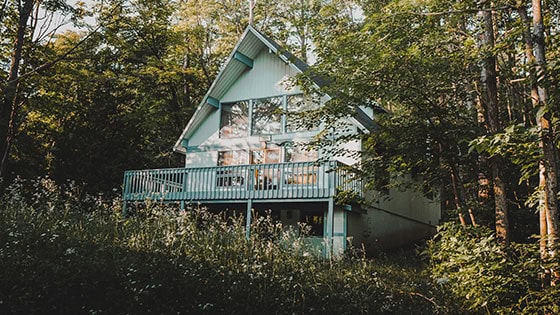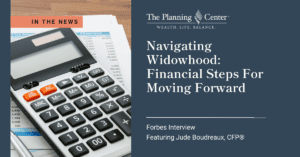
The temptation often starts cropping up during one’s mid-career years. Some big goals have already been achieved—paying off all “bad debt,” purchasing a primary residence, saving sufficiently for retirement and kids’ education—but there’s some excess cash flow that doesn’t yet have a job assigned to it. It’s reasonable to ask, “ok, now what?”
It’s also perfectly normal to assume that a vacation home is the highest and best use of excess cash flow. After all, very few people seem to regret purchasing their primary residence. Perhaps it stands to reason that buying a second home will lead to similarly favorable outcomes.
Well, not so fast.
Owning a vacation home might be the best possible use for your excess capital. It also might be the biggest financial mistake of your life. Or it could be somewhere in between. It pays to figure out where your potential second home purchase lies on that spectrum before you find yourself signing on the dotted line at closing day.
Here are three questions to ponder as you explore the possibility—
How much will it truly cost?
I’m just not talking about the purchase price, or even the “all-in” monthly costs your realtor or lender will share with you. I’m also referring to the less obvious costs, such as…
- Furniture
- Utilities
- Routine maintenance
- Necessary upgrades
- Emergency repairs
- HOA dues
- Cleaning services/products
- Snow removal
- Landscaping
- Gas needed to travel back and forth
- Wear and tear on vehicle used to make the trip
When you add these onto the more obvious expenses, the actual cost to own a vacation home can differ significantly from expectations.
Even if you can easily afford to cover these expenses, it pays to ask question #2…
What are the opportunity costs associated with the purchase?
In other words, what else might you do with the resources needed to purchase, maintain, and enjoy a vacation home?
What if not purchasing a second home meant you could reach financial independence three years earlier? What if it meant you could take a yearlong sabbatical and travel the world with your family? What if it meant you could finally start that business you’ve been dreaming about?
Purchasing a second home may seem like the obvious next step. It may be what all your neighbors and friends are doing, what your parents did when they were your age, or what your community/family/culture expects of people with your level of income and success to do. None of this means it’s the best thing for you and your family.
Before you say “yes” to this opportunity, consider which opportunities are you implicitly saying “no” to.
Which aspects of owning a second home are you going to hate?
When considering a second home purchase, it’s easy to get wrapped up in a rosy vision of owning a vacation property. One imagines the hikes, backyard bonfires, dinner parties, game nights, and beach days. It starts to feel like the purchase is clearly the right decision.
That’s when it’s time to invert, to flip the script.
You know what you’re going to love about owning the property. That’s easy and fun to think about. Which aspects are you going to hate?
Adding four hours of driving to the weekend? Getting your kids to sleep in an unfamiliar environment? Dealing with burst pipes? Double the yardwork? Double the cleaning? Not having enough time or money to travel internationally as much as you’re used to?
As helpful as it is to think through your vision of “perfect,” it might be even more beneficial to throw some unpleasant realities into the mix. Having thought through both sides of the equation, you may feel reassured that the pros of owning a second home far outweigh the cons. Or you may feel like you dodged a bullet. Either way, it’s a win.
I want to be clear… purchasing a second home is absolutely the right decision for some people. It might even be the right decision for you. That said, it pays to explore difficult questions such as these before making the commitment.
If you need a trusted advisor to help guide your thinking, The Planning Center is here to help.





